Back to work: Why South Korea's seniors are rejoining the workforce
As life expectancy increases, there are fears the elderly will spend a longer period after retirement without income or purpose.
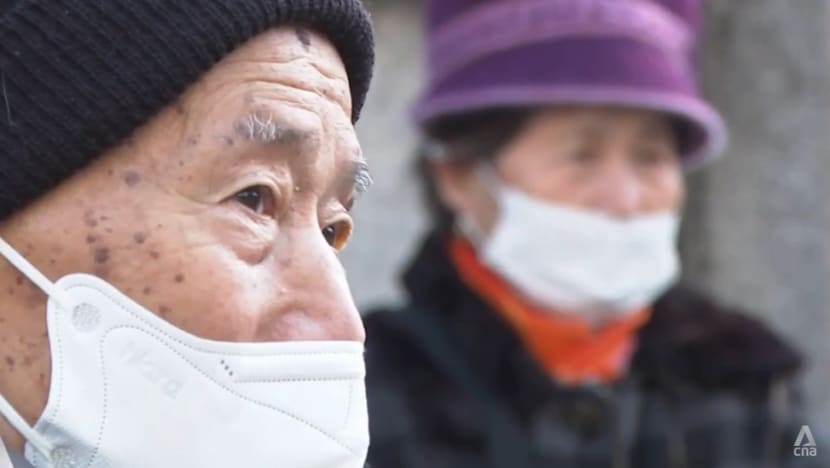

This audio is generated by an AI tool.
SEOUL: The metropolitan subway in Seoul is a vital mode of transport for residents of the bustling South Korean capital.
It is also a valuable source of income for many of the city’s seniors who depend on the network for their jobs.
This includes 71-year-old Cho Sung-whoi, who works as a courier by using the metro to make deliveries on foot.
Rides on the city's sprawling subway network are free for those aged 65 and above. So, some courier companies prefer to hire elderly workers to save costs.
Mr Cho follows a route mapped out on an app on his mobile phone to get to a recipient's address. After dropping off his parcels, he returns to the office for another round of deliveries.
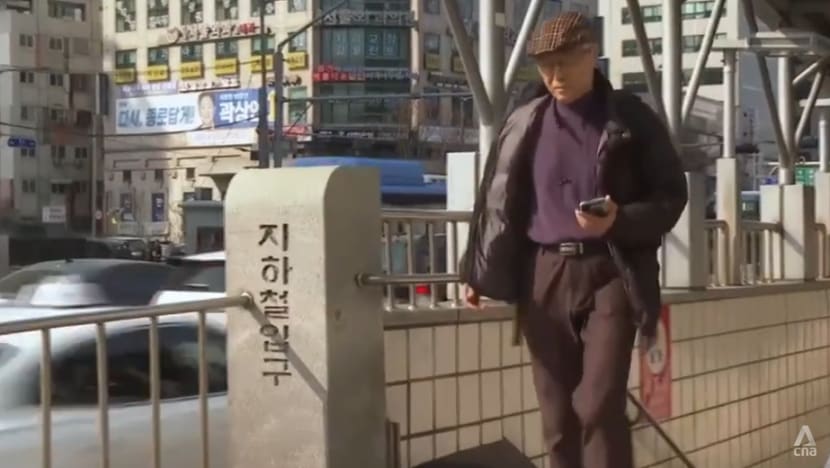
“If I work for a full day, I get around 40,000 Korean won (US$30). When I only work part of the day, I can earn around 20,000 to 30,000 won,” he said.
“I can seek permission and leave whenever I want. The biggest advantage of this job is freedom.”
Mr Cho, a former plant engineer, is one of about a dozen so-called “silver deliverymen” at the courier company. The firm only hires elderly couriers, which helps reduce barriers to employment for seniors.
A QUARTER OF SENIORS HAVE A JOB
South Korean President Yoon Suk Yeol said during a media conference on Thursday (May 9) that he will do more to create jobs for seniors, and also pledged to raise pensions.
Most workers in the country are pushed to retire by 60 years old, and often have to downgrade to menial jobs if they want to rejoin the workforce.
Today, one in four seniors aged 70 and above hold some form of employment. More than 40 per cent are in low-skilled jobs.
Many do so partly to supplement slim pensions. For example, Mr Cho’s pension amounts up to less than US$110 each month.
They also cite other reasons including seeking fulfillment and making better use of their time.
“After retiring, I used to spend my time on hobbies such as travelling, but it felt somewhat meaningless. I was looking for something fulfilling to do,” Mr Cho told CNA.
He then got the courier job when someone introduced it to him. “(This job) promotes the health of seniors, and while doing so, we can earn some extra money,” he added.
BABY BOOMERS DETERMINED TO WORK
Seniors aged 65 and above make up about 19 per cent of South Korea's total population of almost 52 million.
By 2050, that demographic could be as high as 44 per cent due to a rapidly ageing population and historic low birth rates.
As life expectancy increases, there are fears the elderly will spend a longer period after retirement without income or purpose.
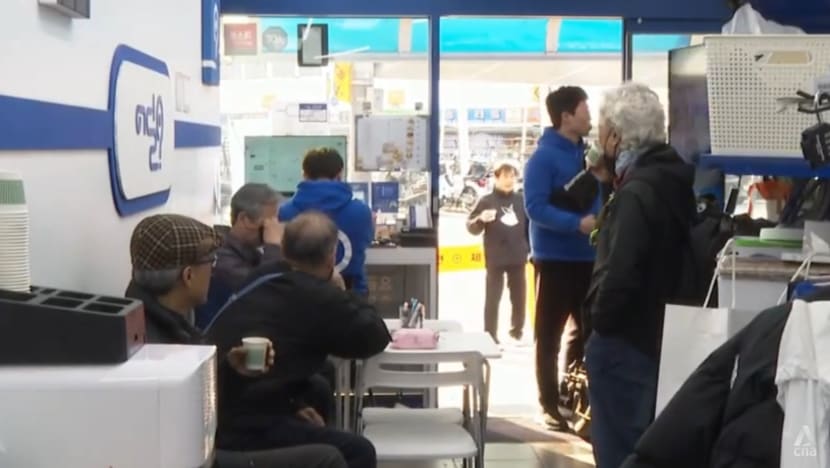
But a new generation of liberated, independent, and often educated baby boomers are opening doors and changing perceptions.
“After raising my children and then taking care of my grandchildren, I found myself somewhat buried. I felt like I needed some community involvement,” said Ms Kim Nan-hyang, a jobseeker who has been a homemaker most of her life.
“I came out primarily to gain experience, to see what I'm capable of and to explore various avenues.”
The 69-year-old approached the Seoul Senior Employment Support Centre, which was set up by the city's government, to seek professional help in her search.
“I'm interested in doing commentary work, like being a docent at places like the Kimchi Museum, but I don't have any specific relevant experience,” she said.
She told CNA that the centre has introduced her to various opportunities.
“If I can do some social service activities while also (reaping) economic benefits, I think it would be more rewarding,” she said. “It would give me a sense of pride in my abilities. I'm also thinking about starting a business.”
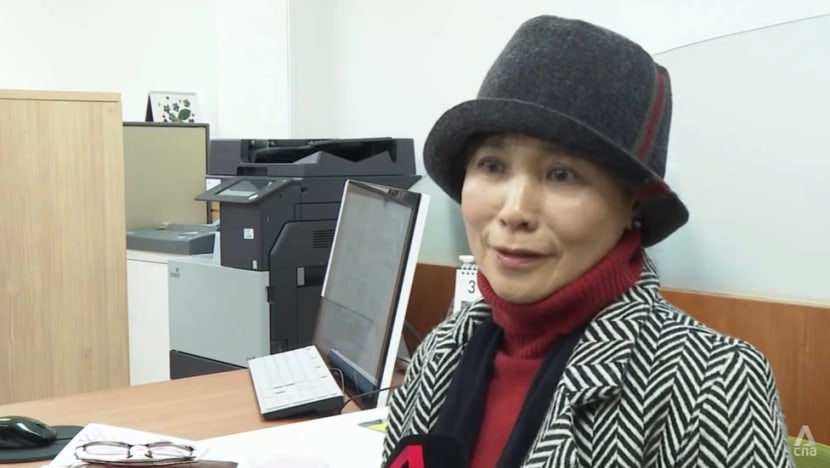
An increasing number of employment centres are helping to identify companies seeking to hire seniors and offering training for those making a career switch.
Counsellors suggest that many elderly job seekers want reassurance that they are still contributing members of society, and can make a difference in the workplace.
“They typically start with questions like: ‘Can I work?’ and ‘Are there places that hire seniors?’ Many of them lack information on available opportunities. They often feel uncertain about what kind of jobs they can do and what skills they need,” said Ms Park Joo-im, director of the Seoul Senior Employment Support Centre.
“Although each district offers job counselling services, these centres tend to attract younger individuals, leaving seniors somewhat marginalised.”
TRANSFORMING ELDERLY EMPLOYMENT LANDSCAPE
The nation has the highest old-age poverty rate in the Organisation for Economic Co-operation and Development (OECD) grouping of 38 economies, of which South Korea is a member.
Four in 10 South Korean seniors live below the poverty line.
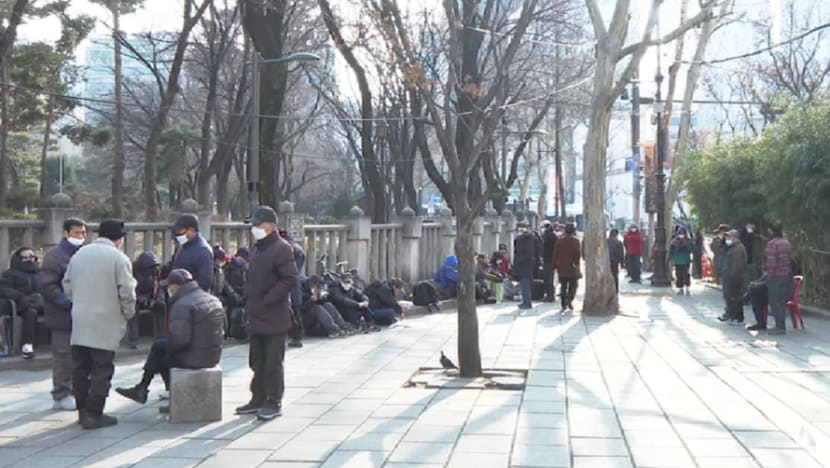
However, experts said the situation is set to ease due to gradual expansions in pension coverage, and a growing focus on job creation for the elderly in government budgets.
“Rather than just providing public sector jobs as a form of social welfare benefit, which may seem like inefficient budget utilisation, future policies should focus on creating market-oriented jobs,” said social welfare Professor Jung Jae Hoon from Seoul Women's University.
“This could include supporting startups or encouraging self-employment and entrepreneurship. Additionally, flexibility in retirement age may be necessary.”
He suggested strengthening lifelong education, particularly vocational training tailored for older workers.
Already, the elderly are filling more than half of new jobs created in South Korea.
In contrast, only 1 per cent of newly created positions went to workers in their 20s or younger in 2022.
As unions press to raise the retirement age, there are fears that South Korea could be poised for a contest for jobs between seniors and youth struggling to find work.













